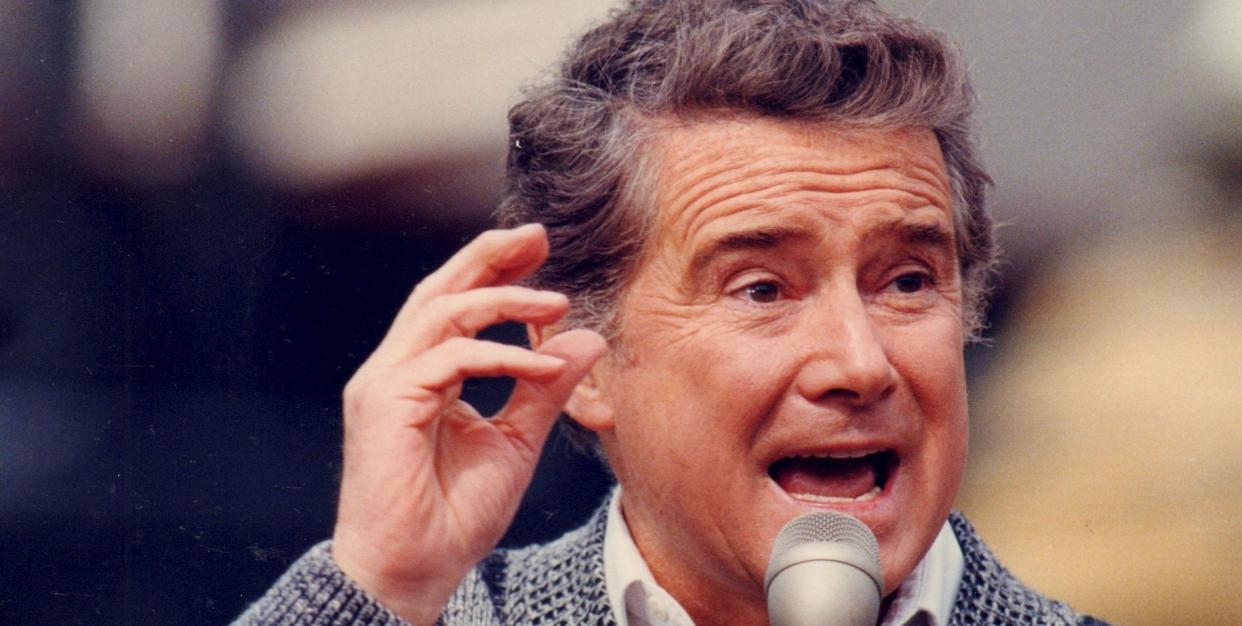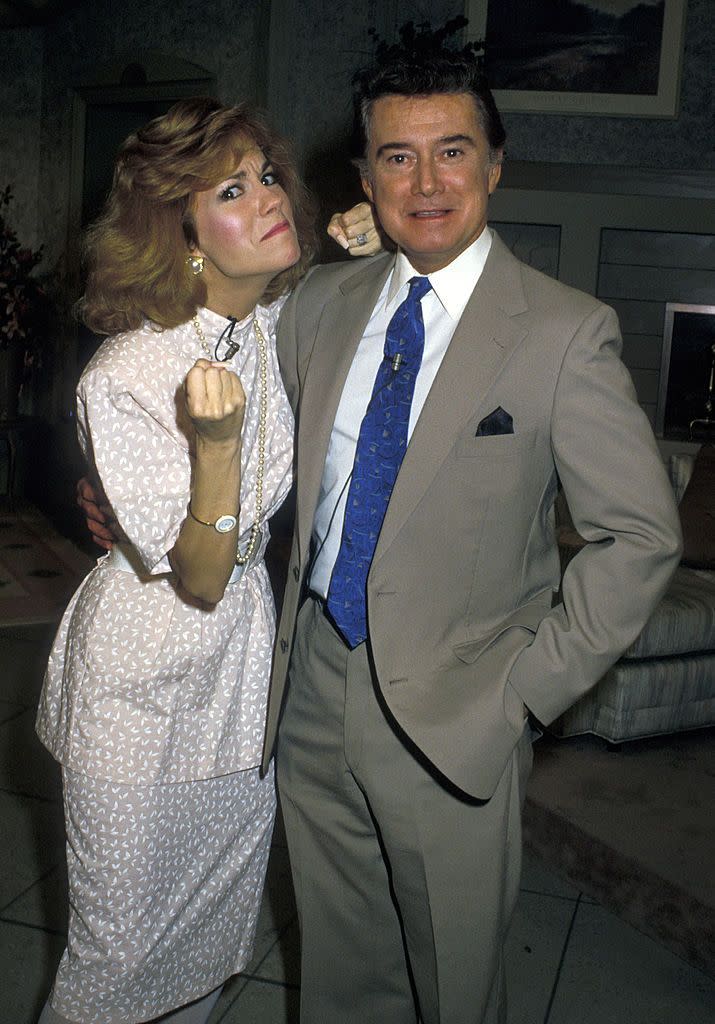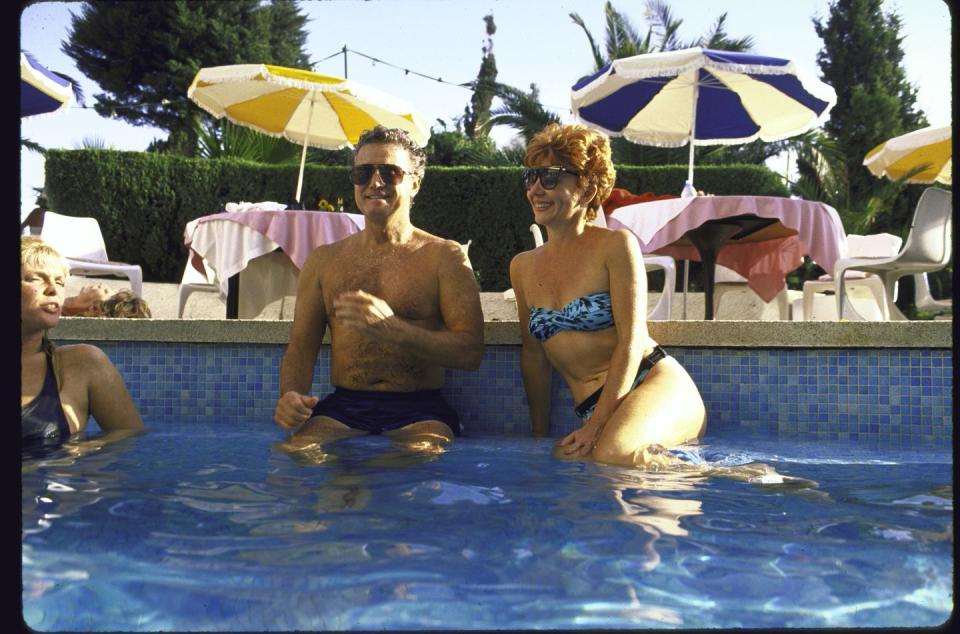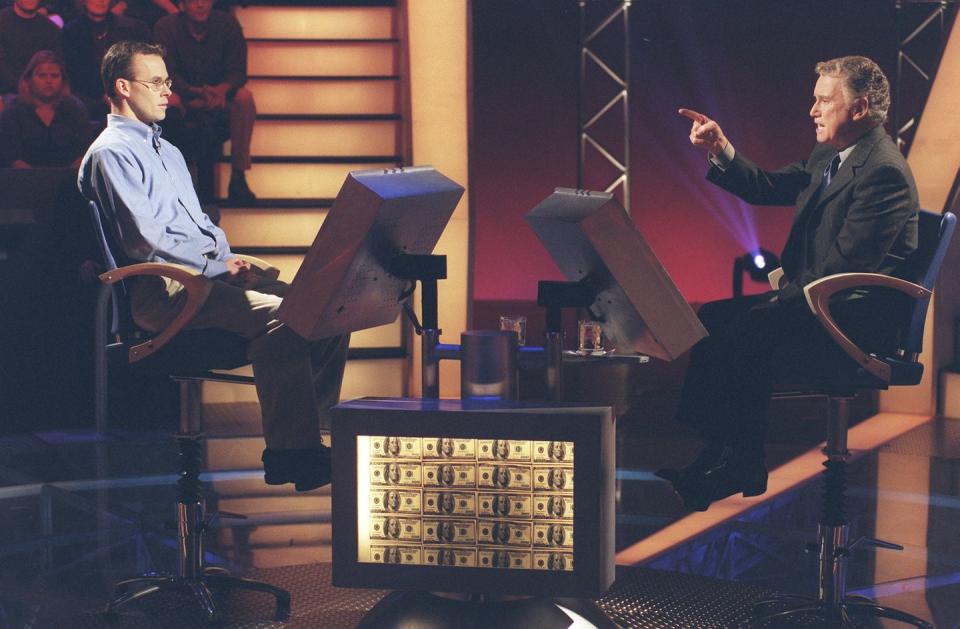Regis Philbin: What I've Learned

This was originally published in the January 2005 issue of Esquire.
I wake up ninety minutes before I go on the air. It’s not much time, is it?
I’m nervous only if I don’t go out the night before or if there is nothing I can think of to talk about. Because the audience is used to that opening twenty minutes. That, I think, is the linchpin of the show. But I’ve got Kelly. I’ve got the Post. I’ve got the Daily News. I’ve got New York. Between it all, something comes out.
Going out every night is not easy.
When I was getting out of the service, this old marine major said to me, “What do you want to do with your life?” And I said, “Well, I think I want to go into television, but I don’t know if I have the talent.” He took his two shoes that he was shining and he smashed them together and he said, “Don’t you know you can have anything you want in this life? You’ve just got to want it bad enough! Now, do you really want it?” I said, “Yes, sir, I do.”

That’s when I charged out of my BOQ and got in my little Hudson convertible and went to Hollywood and began knocking on doors.
Dark! Blue on blue. Black on black. Whatever it was, it made a fashion statement. All of a sudden, I was a guest speaker at the annual tie convention! One day, the executive producer, Michael Davies, said, “We can’t go with that look anymore. Every weatherman on television in every small town in America is dressing like you.”
Telling a story for the second time: big mistake. Doesn’t ring true at all. The phrase is, Never leave it in the hall!
I was born about eight blocks from this studio. When I came back here in my early fifties after being on the coast for so long, I felt like an old elephant that had come home to die.
Everybody in L.A., let’s face it, is from New York.

My father was Irish, my mother was Italian. I think my own fears and inhibitions are probably a little more Irish. The Italian side of me, I guess, comes out in front of a television camera.
I could never really tell them that I wanted to be a singer. When I did, my mother cried her eyes out, and my father just looked out the window. They had put me through Notre Dame. It was a major, major disappointment in their lives. So I kind of reconsidered and finally wound up a talk guy.
I love Notre Dame. I want my ashes scattered there.
My dad died when he was sixty-seven. I regret terribly that he wasn’t around to see the success of the national show, that I put him through torture without him seeing the rewards. It is an unfinished piece of business in my life.
It’s a tricky piece of business, being a father. Each child is different, has a different sensibility. But you love them all and want the best for them. If only they could understand that that’s what it’s all about—having the best for them. Even though they can’t see it your way, hopefully, one day, they will.
Last Christmas Eve, I went over to see Jack Paar. He’d had a stroke. He couldn’t talk. He would sit in the bedroom and stare at me. The nurse said, “Jack and I were looking at your show this morning, and he was laughing.” I said, “Did you really hear him laugh?” She said, “He laughed.” I said, “Oh, my God, that makes me feel golden.” That was the last time I saw him.
Letterman won’t go to dinner. I tell him. “I want to spend quality time with you! I want to be your friend.” I’ve even asked him to movies: “Let’s go see Hidalgo together!” He wouldn’t hear of it.
Everybody relates to aggravation. To hear somebody else’s aggravation makes your aggravation a little less.

It’s going to be thirty-five years of marriage. I got very lucky with Joy. She is everything a woman should be. She really is a finished product. Rock solid.
Notre Dame had lost for the first time in almost five years, and we couldn’t fathom it. Coach Frank Leahy, who was a great motivator, told us that day: Learn how to accept defeat in football and in your own life, because it will come.
Oh, I am the sorest loser. I get violent. I kick things. One time in California—and this was almost thirty years ago at a director’s house—I lost and just flung that tennis racket with a violent siege of temper! It landed on the adjoining home’s roof, and it stayed there for about twenty-five years. Every time I drove by that house, I would look up at the roof and there was the racket. It was a dagger in my heart.
Four nights a week. You can’t do that in prime time. I still believe one night a week, Millionaire could have been a contender for years.
Dean Martin is very important to me. I don’t do anything without him playing in the background. It makes me feel great. I’ve got to have my Dean!
John’s Pizza here in New York. Thin crust! Thin! Also the Gray’s Papaya hot dog. Mustard and sauerkraut. It is a joy. Oh, God, it’s like having dessert.
Sometimes you feel like, you know, you’re stealing your money.
I’ve got a contract that ends in less than two years. But, you know, it’s good to be king! Stay king as long as you can!
Read Esquire's June 1994 profile of Regis Philbin, who died Saturday, July 25, 2020, on Esquire Classic here.
You Might Also Like

